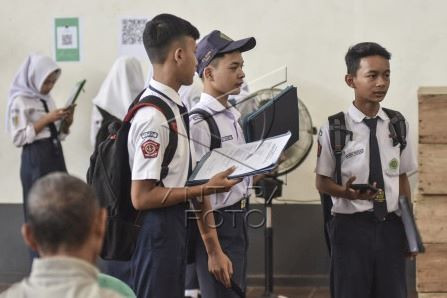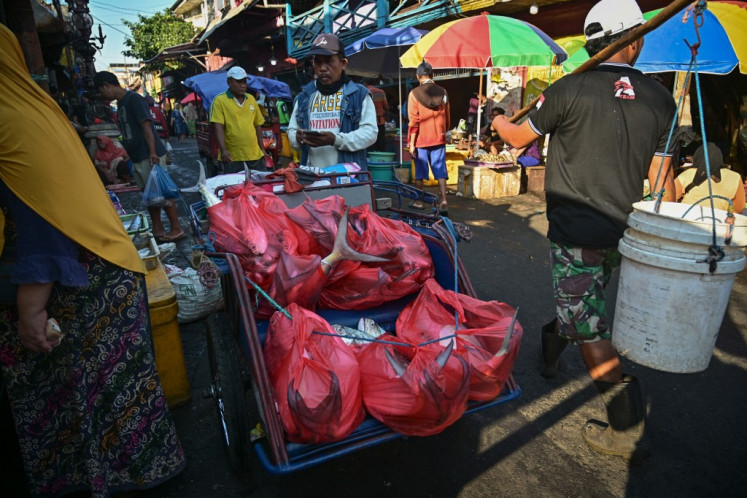Popular Reads
Top Results
Can't find what you're looking for?
View all search resultsPopular Reads
Top Results
Can't find what you're looking for?
View all search resultsSchools zoning regulations under evaluation: Deputy schools minister
The Elementary and Secondary Education Ministry is set to evaluate its school zoning policies to enhance fairness and accessibility in education. This initiative aims to address ongoing challenges and incorporate community feedback.
Change text size
Gift Premium Articles
to Anyone
T
he government is currently drafting new, more flexible regulations and infrastructure on school zoning policies, Second Deputy Elementary and Secondary Minister Atip Latipulhayat said on Thursday.
“We are working on new regulations that will be more adaptable, taking into account input from communities across various regions,” he said in a written statement on Thursday, following a meeting with the Alliance for Advocacy and Student Welfare (Adkesma), as quoted by Tempo.
Adkesma has identified disparities in facilities and infrastructure among schools as significant obstacles to achieving the goals of the zoning regulation.
Elementary and Secondary Education Minister Abdul Mu’ti noted that his ministry has completed a study on the zoning pathway for student admissions.
Mu’ti said that three official studies have been conducted, involving discussions with heads of regional education agencies and education providers from across Indonesia.
He expected that a decision on the zoning regulation would be reached by February, allowing for the dissemination of the new student admission regulations to commence in March, before the start of the new academic year.
Meanwhile, the Indonesian Teachers Association (P2G) has urged the government not to rush into abolishing the zoning system.
P2G national coordinator Satriwan Salim emphasized that while some aspects of the initial goal of zoning were commendable, such as aiming to equalize educational quality and access, bringing students closer to schools and providing support for underprivileged children — the system has faced persistent issues over its seven years of implementation.
He pointed out ongoing challenges such as uneven distribution of public schools across Indonesia, demographic analysis deficiencies in local student admissions, manipulation of family cards for access to preferred schools and practices of illegal fees and interventions for admission into specific schools.
“P2G hopes that the ministry will create a comprehensive design for a new student admission scheme that is fair, non-discriminatory and supportive of all Indonesian children,” Satriwan said in a written release on Nov. 22.










